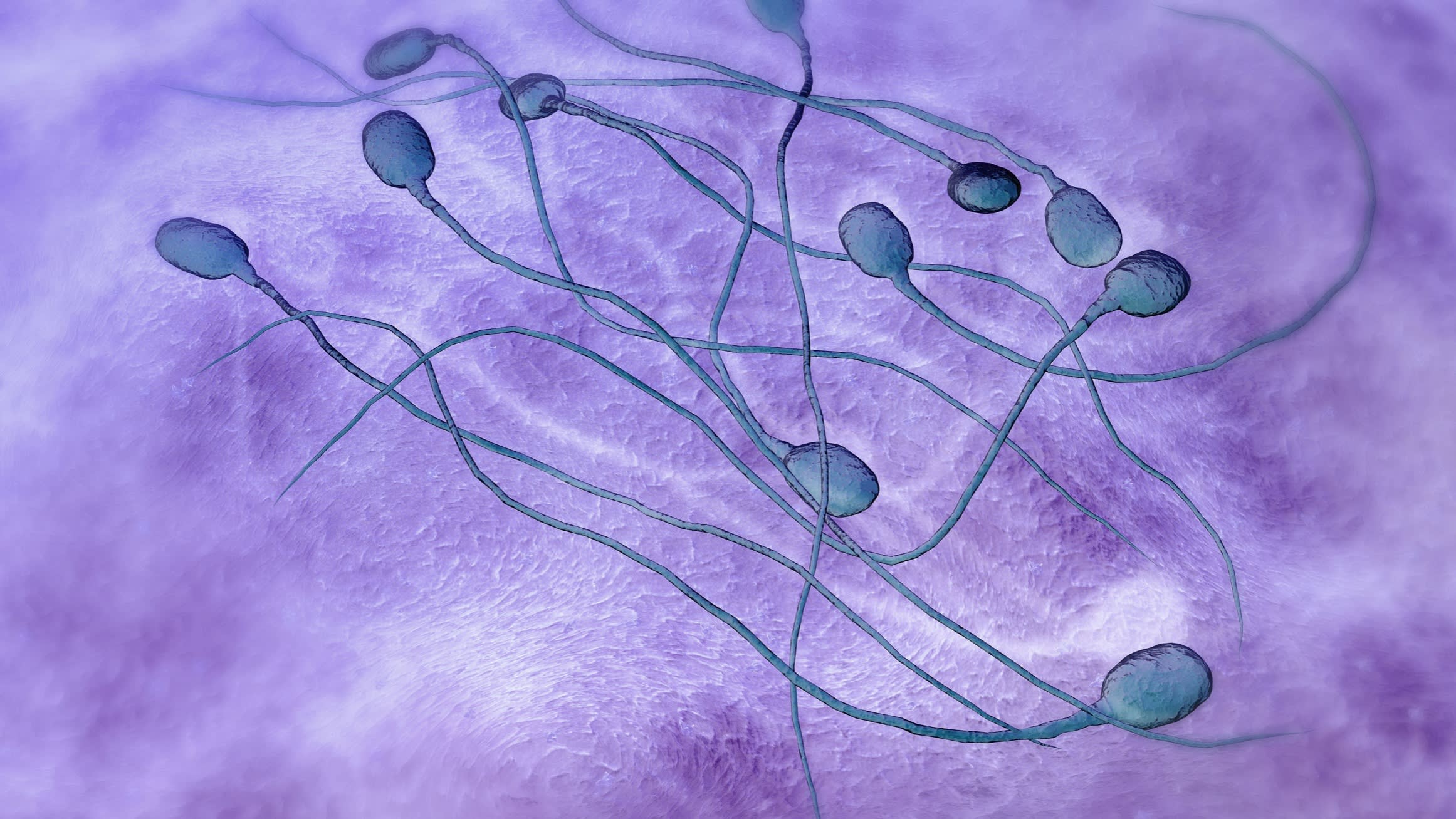Global sperm counts are falling. This scientist believes she knows why
On a rainy evening in Copenhagen last year, a diminutive woman in jeans, ankle boots and a casual shirt waited offstage at the Koncerthuset, a vast venue renowned for its acoustics. She had been invited by Science & Cocktails, a Danish non-profit that pairs lectures with drinks chilled in dry ice. Many in the audience were decades her junior and the mood was more rock concert than lecture as a voice over the loudspeaker announced, “The one and only — Shanna. Fucking. Swan!”
Swan, who turned 87 last month, walked on to the thump of a techno track, whoops and applause. “Wow. I have to say” — she chuckled gamely — “I’ve never had an introduction like that. And it’s wonderful.” As the hall quietened, she began to speak, calmly and without notes, about the animating purpose of her professional life. “I’m going to tell you a mystery story,” she said. “And hopefully, you’ll help me to solve it along the way.”

Swan rebuts this, pointing out that her most recent work, published last November, suggests sperm counts are falling worldwide. Climate change scientists faced similar scepticism, she noted. “People said, ‘Oh, well, it’s warm right now. But [temperatures will] go down. And that’s the way climate is.’ Well, in fact, that’s not the case.” While she accepts that a lower-than-average sperm count does not necessarily doom a man to childlessness, there is a consensus that once sperm counts hit a particular level — below about 40 million sperm cells per millilitre of semen — fertility can be impaired.
The chemicals she has been able to link most directly to reproductive health are phthalates and pesticides, where she and others have found convincing evidence of a causal link between reproductive disorders and the “triazine” category of herbicides. Other researchers, she says, have found equally incontrovertible evidence of harm to reproductive health from other classes of EDCs such as the bisphenols. “When we began this work, we were in the medical and scientific wilderness because no one believed us,” Myers, who wrote the 1996 best-seller, told me. “And then gradually we built up the science.” But the regulatory climate remains heavily weighted towards industry. Some companies have proudly declared their plastic bottles and baby products “BPA free”, referring to Bisphenol-A, a chemical that can seep into food and beverages and, some researchers believe, harm human health — only for it later to emerge that the substituted product amounted to “slightly tweaked molecules”, Swan said.
Some nights Swan lies awake worrying. “The alarm I feel is a global alarm,” she said. “I feel it equally for human and non-human species.” She and her fellow campaigners have notched some successes. In 2008, for example, children’s toys and childcare items containing more than 0.1 per cent of three types of phthalates were permanently banned in the US. This year, the European Food Safety Authority recommended lowering the “tolerable daily intake” for BPA by a factor of about 20,000. (The European Medicines Agency is opposing the change.)
In April, G7 climate, energy and environment ministers issued a communiqué committing to “actively preventing chemical pollution, or . . . minimising its associated risks, including when caused by releases of endocrine disrupting chemicals”. Swan characterised this as a “very, very big” moment in her long-running battle to wake up governments and regulators to the dangers from EDCs.
As I spent time with her, I sensed that what keeps her going, above all else, is a lifetime habit of curiosity. Now based in San Francisco, she continues to pursue research breakthroughs in her field. While studying maths in her youth, she won an award after conceiving the notion that logic need not be binary, with true or false the only options, and developing a system of “three value” logic. She resists the security of the status quo, and while she revels in collaboration, she has also stayed true to the independent little girl, determined to navigate the world on her own terms, that found sanctuary in Juxey’s House.
Her overriding preoccupation remains how to alert a still largely oblivious world to the threat from EDCs. “You and I, and everyone on this planet, are really serving as guinea pigs,” she says. “And nobody asked us.”
Sarah Neville is the FT’s global health editor
Follow @FTMag on Twitter to find out about our latest stories first
This story originally appeared on: Financial Times - Author:Sarah Neville




























